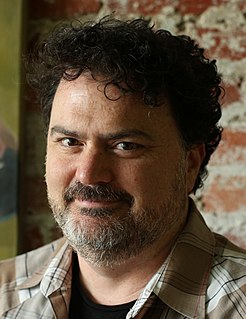A Quote by Linda Lantieri
Emotional intelligence in the work that we do, in the Resolving Conflict Creatively Program, is about equipping young people with the kinds of skills they need to both identify and manage their emotions, to communicate those emotions effectively, and to resolve conflict nonviolently. So it's a whole set of skills and competencies that, for us, fall under the umbrella of emotional intelligence.
Related Quotes
I think in the coming decade we will see well-conducted research demonstrating that emotional skills and competencies predict positive outcomes at home with one's family, in school, and at work. The real challenge is to show that emotional intelligence matters over-and-above psychological constructs that have been measured for decades like personality and IQ. I believe that emotional intelligence holds this promise.
We found out that the young people who had a substantial number of lessons in the Resolving Conflict Creatively Curriculum ... not only did better in terms of people skills, that they managed their emotions, they were less violent and more caring, but they actually did better on their academic achievement tests.
Cognitive skills such as big-picture thinking and long-term vision were particularly important. But when I calculated the ratio of technical skills, IQ, and emotional intelligence as ingredients of excellent performance, emotional intelligence proved to be twice as important as the others for jobs at all levels.
When you have a conflict, that means that there are truths that have to be addressed on each side of the conflict. And when you have a conflict, then it's an educational process to try to resolve the conflict. And to resolve that, you have to get people on both sides of the conflict involved so that they can dialogue.
What the economy requires now is a whole different set of skills: You need intelligence, you need an ability to sit still and focus, to communicate openly to be able to listen to people and to operate in a workplace that is much more fluid than it used to be. Those are things that women do extremely well.
Comparing the three domains, I found that for jobs of all kinds, emotional competencies were twice as prevalent among distinguishing competencies as were technical skills and purely cognitive abilities combined. In general the higher a position in an organization, the more EI mattered: for individuals in leadership positions, 85 percent of their competencies were in the EI domain.
Business requires an unbelievable level of resilience inside you, the chokehold on the growth of your business is always the leader, it's always your psychology and your skills - 80% psychology, 20% skills. If you don't have the marketing skills, if you don't have the financial-intelligence skills, if you don't have the recruiting skills, it's really hard for you to lead somebody else if you don't have fundamentally those skills. And so my life is about teaching those skills and helping people change the psychology so that they live out of what's possible, instead of out of their fear.


























